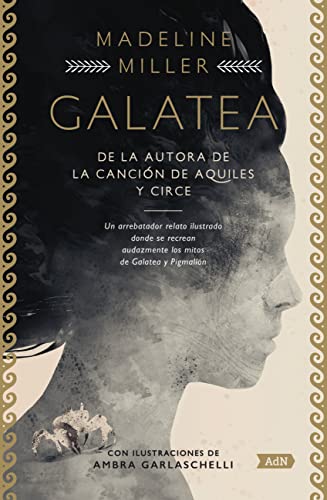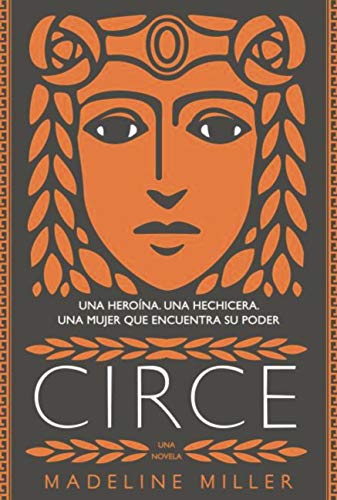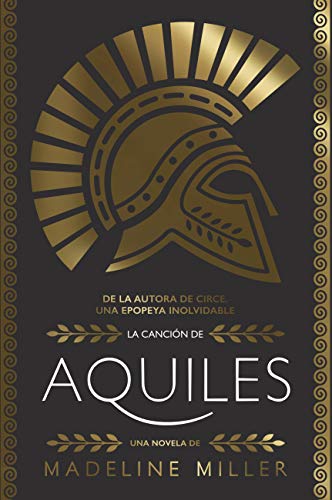It is not the first time that I have cited the analogies between young writers Irene Vallejo and Madeline Miller, two great connoisseurs of an ancient world who know how to recover those aromas from the cradle of our civilization like no other. Each of them has its focus and rescues different sociological and cultural perceptions within the shared historical context. In the end, both make up a tandem in the distance that brings us all closer to those dawns in a fascinating way, as if they were really new horizons and not past splendors.
On the part of Madeline Miller there are more than purely historical aspects while Irene is capable of tracing unsuspected paths from the philological to the most transcendental. Regarding Madeline, her chronic character reaches us with the intention of presenting us with historical fictions that are sometimes loaded with greater doses of realism around historical figures but that also drink from the founding myths of the ancient world. For both of them, the feminist aspect of her works brings new meanings to the role of women in history.
Top 3 Recommended Madeline Miller Novels
Circe
Revisiting classic mythologies to offer new novels with the pull of the epic and the fantastic is already a resource that works well. Recent cases like those of Neil Gaiman with his book Nordic myths, or the increasingly widespread references among authors of historical novels confirm that taste for the old legends between the divine and the human, which the ancients took care to compose in the distant days of the dawn of our civilization.
And of course, on the shores of the Mediterranean we are more concerned with what concerns the ancient world of Greece or Rome. That's where Madeline miller He ends up winning us with his deep knowledge of the subject and his studied intention to offer us a captivating tau plot as a cultivator.
In the utopian golden age, from which the powerful imaginary materialized in primal religion emanates, we meet Circe, who later would stand out as a sorceress as narrated by Homer from that first base set by Hesiod.
In a world of titans we can also find that point of rarity, wayward youth and femininity approached as a strange world for the aedos or first rapporteurs headed by Homer himself.
And from Circe, Madeline traces a story that is partly vindictive, always illustrative and of great literary power. Because in the exile of Circe, wanted by her own father Helios, the heiress of mysterious powers faces an adventure equal to the Odyssey of Ulysses itself.
One of the first and most powerful images of adversity in its most feminine aspect, of phobias for the different. Only that Circe is enough and there is enough to get out of all the misadventures she finds in her lonely way.
And yet in Circe we discover that despite everything she is moved by love, by vitality, perhaps against the intention of her original narrator. Who once could pose as the antagonist of a world ruled by deities and given over to humans ends up manifesting as a living soul that feels very much above all, gods and humans. With each new setback, she, the witch, grows stronger and forges her will more and more iron.
A novel that links everything related by the ancients and that complements it with a groundbreaking perspective on the character of Circe, the first witch.
Achilles' song
The ancient world is always in fashion. Because just as childhood forges a person's personality, that cradle of our culture that are ancient Greece or Rome make up most of our social, political and ethical principles. From doors inwards and from doors outwards, everything is learned from these cultures where God had not yet arrived and thus certain encounters were allowed between gods, demigods, heroes and other characters who coexisted among the people as a fabulous reality charged with brilliant transcendental mythology. …
A bright, exuberant world laden with a literature sprinkled with lyricism and epic. An imaginary that ended up delving into the human forever from the etymological to the philosophical. Because hardly anything was known and everything was wanted to know with faith in the thought as an instinct and in its reason as the tool.
Greece in the age of heroes. Patroclus, a young and clumsy prince, has been exiled to the kingdom of Phtia, where he lives in the shadow of King Peleus and his divine son, Achilles. Achilles, the best of the Greeks, is everything that Patroclus is not: strong, handsome , son of a goddess. One day Achilles takes the pitiful prince under his wing, and that provisional bond gives way to a solid friendship as the two grow into young men skilled in the arts of war, but fate is never far from Achilles' heels.
When the news of the abduction of Helen of Sparta spreads, the men of Greece are summoned to besiege the city of Troy. Achilles, seduced by the promise of a glorious destiny, joins the cause, and Patroclus, torn between love and fear for his companion, follows him to war. Little did he imagine that the following years would put to the test everything they had learned and everything they deeply valued.
Galatea
In Ancient Greece, Pygmalion, a talented marble sculptor, has been blessed by a goddess, who bestows the gift of life on his masterpiece, the most beautiful woman the place has ever seen: Galatea. Once the carver makes her his wife, she expects him to please and be obedient, the embodiment of humility, but she has her own wishes and desires for independence from her.
In a desperate bid by her obsessive husband to control her, she ends up confined under the constant supervision of doctors and nurses, but, with a daughter to rescue, Galatea is determined to free herself at any cost.



